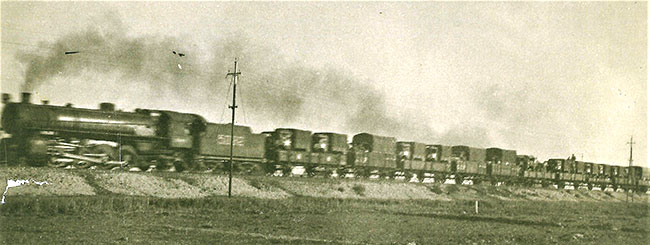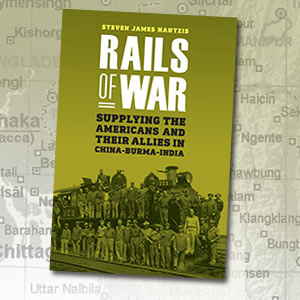
Rails of War
Hell On Wheels
 In a theater of war long forgotten and barely even known at the time, James Harry Hantzis and his fellow soldiers labored at a thankless task under oppressive conditions. Nonetheless, as Rails of War demonstrates, without the men of the 721st Railway Operating Battalion, the Allied forces would have been defeated in the China-Burma-India conflict in World War II.
In a theater of war long forgotten and barely even known at the time, James Harry Hantzis and his fellow soldiers labored at a thankless task under oppressive conditions. Nonetheless, as Rails of War demonstrates, without the men of the 721st Railway Operating Battalion, the Allied forces would have been defeated in the China-Burma-India conflict in World War II.
Steven James Hantzis’s father served alongside other GI railroaders in overcoming danger, disease, fire, and monsoons to move the weight of war in the China-Burma-India theater. Torn from their predictable working-class lives, the men of the 721st journeyed fifteen thousand miles to Bengal, India, to do the impossible: build, maintain, and manage seven hundred miles of track through the most inhospitable environment imaginable.
From the harrowing adventures of the Flying Tigers and Merrill’s Marauders to detailed descriptions of grueling jungle operations and the Siege of Myitkyina, this is the remarkable story of the extraordinary men of the 721st, who moved an entire army to win the war.
Steven James Hantzis is the son of James Harry Hantzis, former staff sergeant of the World War II 721st Railway Operating Battalion. A retired Grand Lodge representative for the International Association of Machinists and Aerospace Workers, Steven Hantzis worked twelve years as a brakeman-conductor for Conrail. Both his father and his great-grandfather were railroaders.
“An incredible look at the monumental task of these logistics superheroes. . . . These unsung members of our Greatest Generation worked miracles, and Steve Hantzis does a wonderful job capturing the danger, the difficulty, and the rewards in a very personal way. As a commander of our Flying Tigers in Desert Storm, I especially enjoyed the parallels between the logistics of World War II and Desert Storm.”
—Gen. Gene Renuart, USAF (Ret.)



